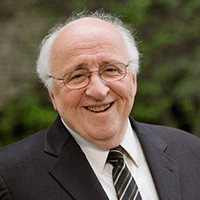I’ve been reading recently about the importance of “the meal” in the biblical narratives; Passover, eucharist, the Wedding Feast of the Lamb -- all of that good biblical stuff about sharing meals together. But I have a more practical concern about meals. I think that the way we partake of food these days is an important factor in the much-discussed decline of civility.
At a presentation I attended when I first got into educational administration, some folks who provide food services for college campuses observed that young people today don’t know how to “dine.” They “graze.” They don’t sit at a table with other people for any length of time. In a college eating area, they go from the salad bar to the hot meal counter, and then pick up a frozen yogurt cone as they leave. And this pattern of eating begins in their homes. If family members eat together at all, it is often with the TV set on -- or the kids are listening to their iPods.
In the old-style family meal, children learned manners. They cultivated patience by being forced to sit at a table for forty minutes with people they found irritating. This prepared them for citizenship.
The decline of the family meal is itself a symptom of a decline in family life as such. For one thing, few of us have the same access to an extended family that people once did. We move around a lot. And more of us come from broken families and blended families. And even when we do preserve something like the “traditional” family unit, we often have hectic schedules in our scattered lives.
This is a serious problem. Aristotle rightly observed that the pilgrimage toward citizenship begins with kinship relations, and then expands to friendship. Eventually we have to grow beyond respecting other mainly because they are “our own kind” and begin to respect them simply because of the common humanity we share. But the early kinship relations are a necessary first step in the journey.
When I witness the TV talking heads shouting at each other, I wonder what their mealtimes were like when they were young. Robert Putnam wrote about the “bowling alone” phenomenon as a threat to civil society. Maybe we need a book now on the dangers of “eating alone.”
Richard J. Mouw is president of Fuller Theological Seminary.







